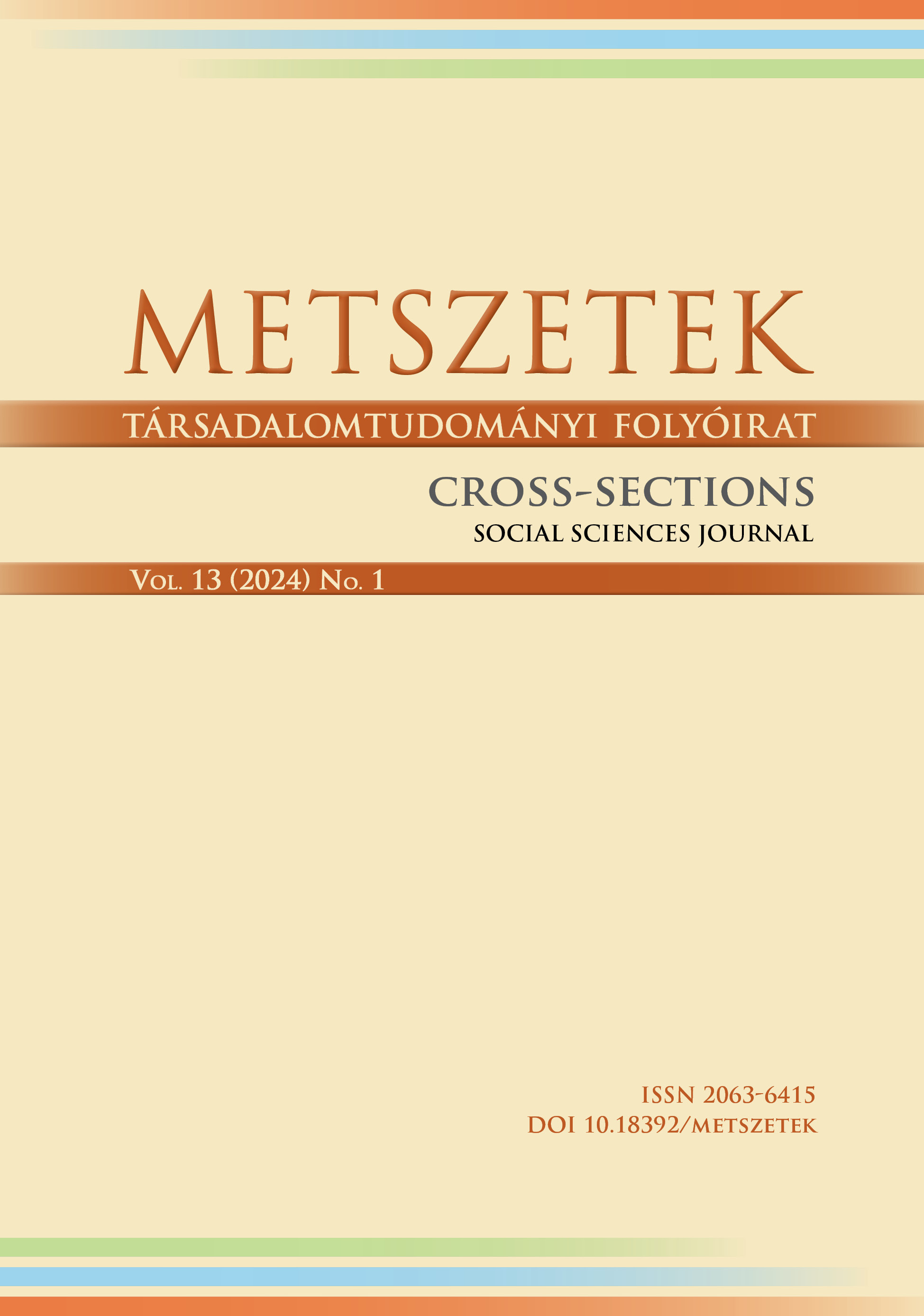Reframing of Particular Trust
Author
View
Keywords
License
Copyright (c) 2024 CROSS-SECTIONS - Social Science Journal

This work is licensed under a Creative Commons Attribution 4.0 International License.
A CC BY licence alkalmazása előtt megjelent cikkek esetében (2020 előtt) továbbra is a CC BY-NC-ND licence az érvényes.
How To Cite
Abstract
The paper strives to reconsider the theory of particular trust, i.e. one’s trusting feelings towards her/his most intimate relatives, friends, and personal relations. By doing this, at first, the paper sheds light on two distinct interpretations of particular trust in the literature. One of these approaches addresses particular trust as a kind of core disposition of the self, and it describes how one’s trust towards her/his bonding relations establishes the given subject’s generalized trust towards others, in a broad sense, to people as such. The other interpretation argues that particular trust is important for group-level social dynamics. It claims that if members of close-knit and exclusive groups, dominated by particular trust, are interacting only with each other, and avoiding out-group relations, then broader social cooperation and collaboration are constrained, social integration and cohesion are limited, and on macro level there is an unfolding distrust. As it seems, the above-described readings of particular trust are contradictory. The current paper stresses that just one of these interpretations is coherent and consistent – the first one.

 https://doi.org/10.18392/metsz/2024/1/1
https://doi.org/10.18392/metsz/2024/1/1





